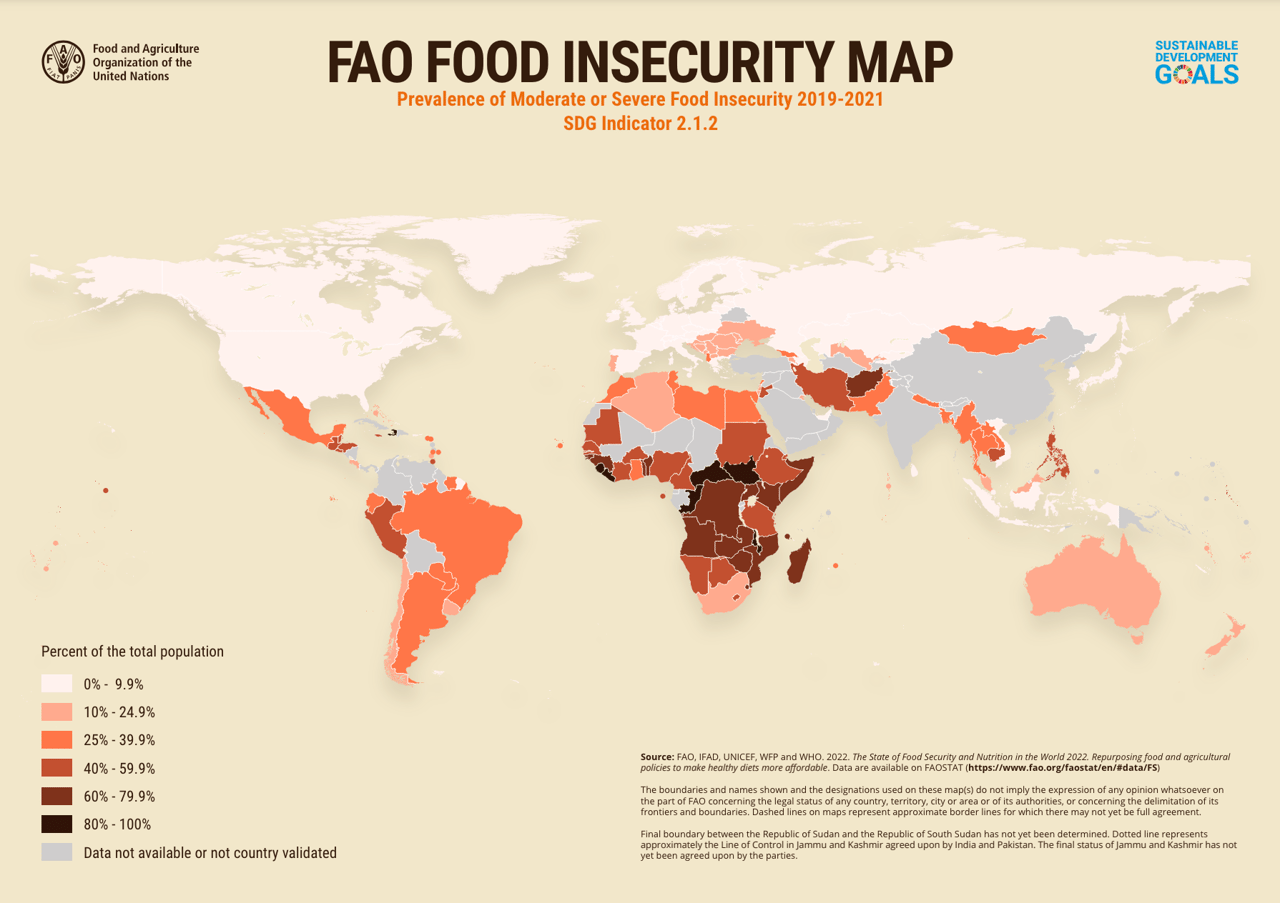Hungry and voiceless: why EU-Africa partnership must rectify this double injustice
With the renewal of the EU’s leadership after June's European elections and the upcoming AU-EU summit next year, there is a critical opportunity to scale up action towards fighting hunger.
However, as we follow the EU-Africa partnership, transparency is lacking, leaving civil society and communities on the side. Increasingly, the intertwining of economic, political, and diplomatic interests tends to overshadow the core goal of human development, leaving us questioning the true beneficiaries and objectives of this partnership.
With nearly 20 percent of the African population facing hunger, and certain countries facing even more alarming levels of under-nutrition and food crisis, progress in food and nutrition security is imperative in this partnership.
Recent data indicates that approximately 30 percent of children under five years of age in the continent are stunted, meaning they are too short for their age, which can lead to permanent physical and cognitive harm.
Moreover, 5.8 percent of children under five are wasted, meaning they are too thin for their height due to rapid weight loss or inadequate weight gain. These children face weakened immunity, developmental delays, and an increased risk of death. Despite various commitments, progress has stagnated and even regressed in several African subregions.

To a much lesser extent, European countries are also affected by hunger and undernutrition: in 2022, two percent of the population in the EU-27 and the United Kingdom was affected by severe food insecurity.
However, food insecurity measurement remains an issue across most EU countries due to the lack of systematic, precise, and coherent approaches.
In 2022, 95.3 million people in the EU (21.6 percent of the population) were at risk of poverty or social exclusion with a large part of them lacking effective access to sufficient, healthy and sustainable food. This has significant health impacts that are deeply linked to increased inequalities.
Fighting hunger is a complex challenge, yet science and experience demonstrate that it is surmountable, especially if actions address its root causes
These are widely recognised: the impact of protracted conflicts and the use of hunger as warfare; the rise of socio-economic inequalities and unaddressed gender disparities; the effects of climate and environmental crises; failing food systems, incoherent and unfair European agricultural policies; and the shortcomings of local, national, and international policies.
What is crucial is political will. Having worked extensively in both continents alongside communities battling hunger and malnutrition, we urge EU and AU institutions alongside their member states to prioritise the people they serve.
A robust political partnership should focus on fundamental social services, access to nutritious and sustainably produced food, peace and protection, over economic gains and political manoeuvring.
We must ensure this partnership doesn't contribute to a global race to the bottom, but rather uplifts people and protects the planet. A recent leak on the European Commission’s shift towards prioritising competition and EU-centric interests at the expense of human development, however, goes exactly in this depressing direction – as VOICE and CONCORD rightly pointed out.
Instead, our focus should be on long-term outcomes, avoiding failed economic models, self-serving political agreements, misleading media narratives, policy incoherences, and social systems that deepen inequalities.
Civil society organisations and communities are essential in driving human development, ensuring that development agendas are rooted in people’s needs.
Upholding a principled civic space is thus crucial, particularly in the framework of the EU-Africa partnership where organisations and communities must be recognised as true stakeholders, by valuing their contributions in shaping policies and holding institutions accountable.
Civil society is mobilising, presenting united demands and pathways forward. Our leaders need to heed the organised voice of their constituents and steer this partnership toward genuine progress ending hunger and promoting sustainable development.
Disclaimer
This article is sponsored by a third party. All opinions in this article reflect the views of the author and not of EUobserver.Author Bio
Action Against Hunger, founded in 1979, is an NGO with a mission is to save lives by eliminating hunger through the prevention, detection and treatment of undernutrition, particularly during and after emergencies linked to conflict and natural disasters. Today we operate alongside communities in 55 countries around the world, including in Europe and Africa.
Tags
Author Bio
Action Against Hunger, founded in 1979, is an NGO with a mission is to save lives by eliminating hunger through the prevention, detection and treatment of undernutrition, particularly during and after emergencies linked to conflict and natural disasters. Today we operate alongside communities in 55 countries around the world, including in Europe and Africa.